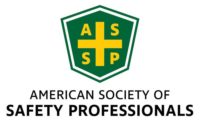In a Jan. 18 letter to New York City Mayor Michael R. Bloomberg and the New York City Council, the American Industrial Hygiene Association (AIHA) expressed opposition to a pending bill before the Council that involves the issuance of permits for atmospheric biological, chemical and radiological detectors.
The bill, known as “Int. No. 650: A Local Law to amend the administrative code of the City of New York, in relation to permits for atmospheric biological, chemical and radiological detectors,” is intended to reduce the number of premature reactions to direct reading instruments by untrained individuals. While AIHA shares this concern, it said that “there are numerous problems with enacting legislation of this magnitude without enlisting the input and expertise of those who are currently qualified and have the experience of using these monitoring devices for years.”
The bill was “laid on the table” at a Jan. 8 Council hearing, but AIHA says there is strong support from Mayor Bloomberg and others to reconsider the bill at a future hearing.
The impetus behind the bill is to protect citizens of New York City from possible terrorist attacks involving chemical, biological, radiological or nuclear devices or weapons. As such, instruments designed to detect the presence of certain chemicals, biological agents, and radiation should be deployed and operated only with the knowledge of appropriate city agencies, the bill says. Moreover, to ensure that any such instrument is reliable and effective so that it will not lead to excessive false alarms and unwarranted anxiety that a large-scale public emergency may be occurring, the bill states that the possession and deployment of atmospheric detectors should be regulated by the issuance of permits, and that alarms should be immediately reported.
AIHA’s concerns with this legislation include:
• The definition of biological agent includes all biological entities. “Existing science does not provide us with numbers that can be used to determine good or bad exposure. It depends on the specific conditions of the site, the types of organisms, the comparable concentration of the organisms, etc.,” the letter states.
• The definition of detectors is designed so liberally that each homeowner in the City will need to file for a permit for smoke detectors. Under the law, it determines a radioactive substance as any substance that “emits ionizing radiation including alpha, beta, gamma and/or neutron radiation.” Nearly all detectors on the market today are sourced with a small radioisotope.
• The permit application requires emergency response plans for use with the detectors. There is no way to determine what emergency plan could possibly be needed for situations that have not yet arisen.
• All exceeded limits must be reported to the NYPD. AIHA asks in the letter: “How would this data be evaluated, responded to and recorded? Perhaps more importantly, what will occur when the reviewer comes to a different conclusion than the site professional? Will the judgment of a seasoned exposure assessment scientist be disregarded in deference to the judgment of some administrator?”
AIHA suggests that rather than enact a new law to alleviate potential fear, it may be more advisable to require all entities offering professional consulting in this arena to have properly credentialed consultants overseeing the evaluations.
AIHA asked the mayor and City Council to withhold future action on this legislation and invite affected stakeholders to begin a dialogue that will produce a law that protects the health and safety of citizens through the combined resources of experts in all fields.
AIHA urges NYC to reconsider detector legislation (1/24)
Looking for a reprint of this article?
From high-res PDFs to custom plaques, order your copy today!





